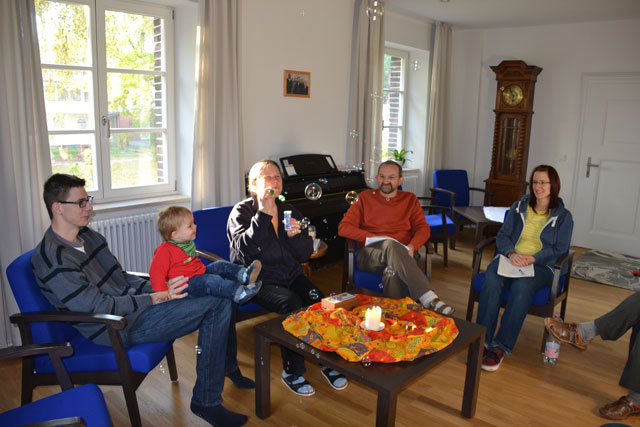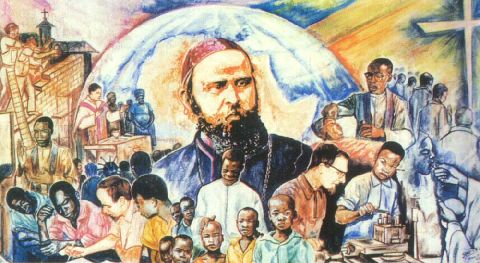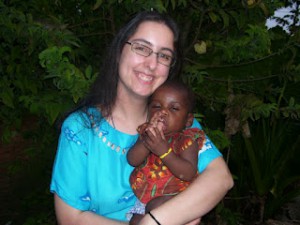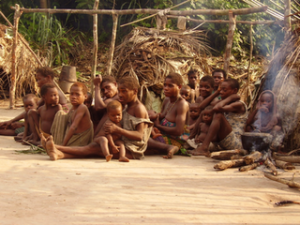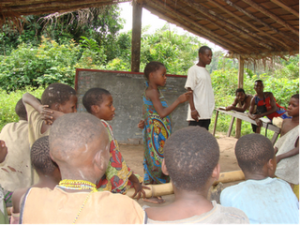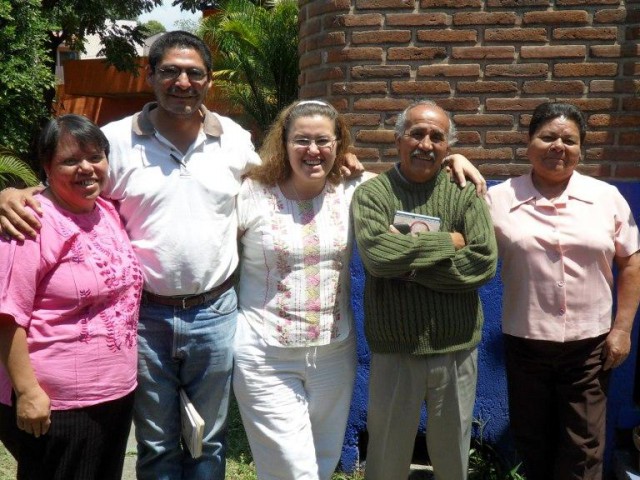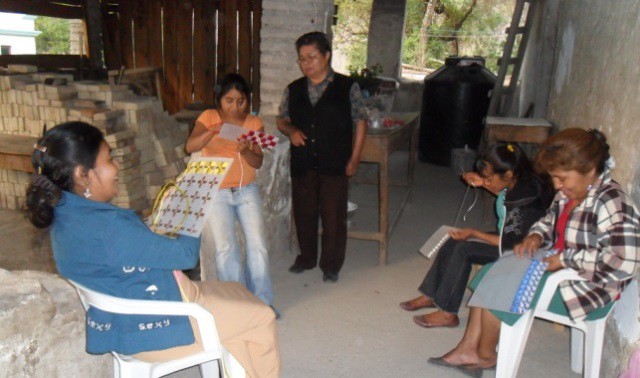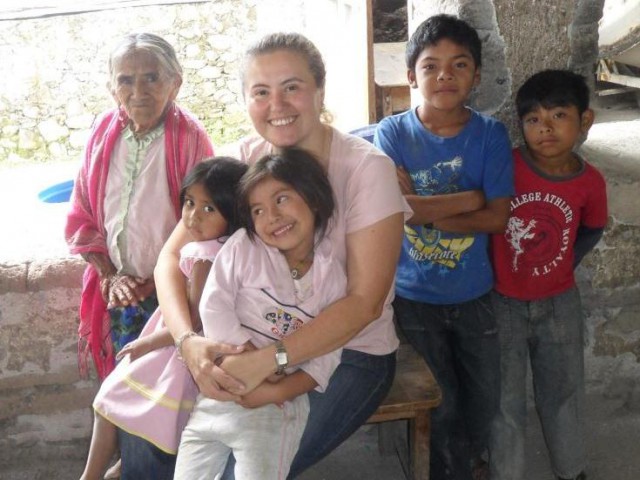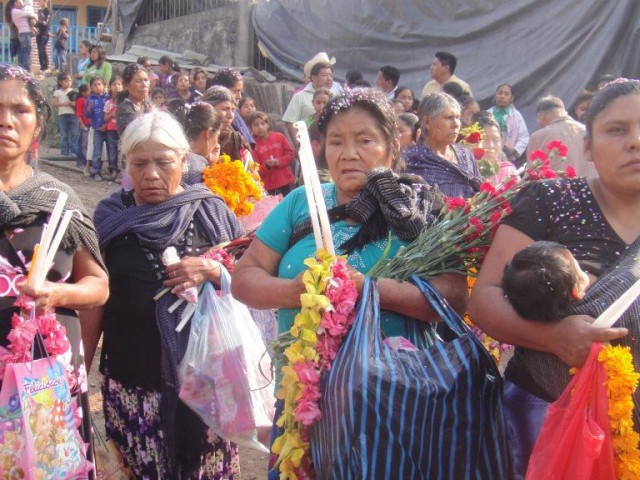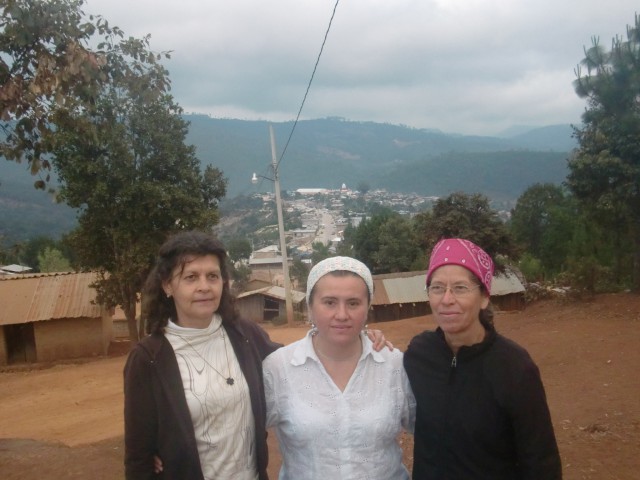
I recently went to visit two of the ladies from the women’s baking group, whom I hadn’t seen for a couple of weeks. I decided to bring them my portion of the desert that the group and I had made that day, yogurt cake with peaches. When I arrived at the first house, I was greeted by Rocio. She accepted the cake and disappeared into a room at the far end of her house. She returned with a smile and a huge slab of chocolate fudge cake that she had just finished making.

As I left her house, chocolate cake in hand, I shook my head, thinking, “It is impossible to give something to a Peruvian without them giving me something in return.” I have several friends who sell food in the market and on the streets. If I try to buy something from them, they often won’t accept my money. If they do let me buy from them, the next I pass by they insist on gifting me at least as much as I originally bought from them.
Arriving at the second house, Manuela greeted me with a hug. She happily took the peach cake, and replied, “Es un trueque entonces. (It’s a trade then).” Before I could respond, she went into her house and emerged with a cup of arroz zambito (the Peruvian version of arroz con leche/ ride pudding).

I thanked her for the arroz zambito and told her that it was very kind but not necessary, as she relies on the sales of the rice desert as an income for her family. Manuela smiled and explained the cultural importance of a “trueque” (exchange of goods). She related that it is a cultural value passed on by the Incas that continues to be an integral part of the Peruvian culture.
Rafael and I were taught something very similar in an intensive course on Peruvian realities that we completed in Lima in 2012. One of the professors taught us that reciprocity is a key value of the Peruvian culture, a value which has a historical basis stemming from the Incas, whose economy was based on a barter system. If someone does something for you, you find a way to do something beneficial for them. I can see this value in action in my everyday life here. Any act of service on my part has been selflessly returned to me, often in ways surpassing anything I have done. My experience of mission here in Peru has been one not just of giving, but of learning to humbly receive what others give me. The people do not give out of their excess or surplus, but rather they give of the best they have to offer.
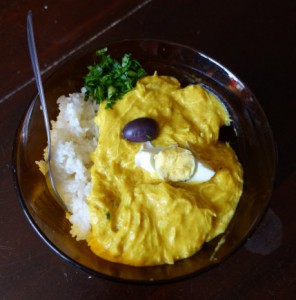
One of the women from the baking group recently told me that she would like to prepare lunch for Rafael and me. She stopped by my house early one morning and told me not to not cook lunch that day. At exactly 1:00pm, the Peruvian lunchtime, she arrived with two heaping plates of food for us. She hadn’t prepared just any meal. Weeks before making this lunch, she had casually asked us what Peruvian dish we like the most. This past Sunday she came bringing us this very meal, “Aji de Gallina.” There are ways to cut corners economically when preparing this dish, but without her having to say anything, I could tell that she had used the very best ingredients at the market. I was at a loss for something to give in return, but it was not necessary. This was a special, loving gift, which she happily gave, without expectation of anything in exchange. I am continually amazed by the people’s generosity and thoughtfulness, and their practice of the principal of “el trueque.”
Emily Harrintong




